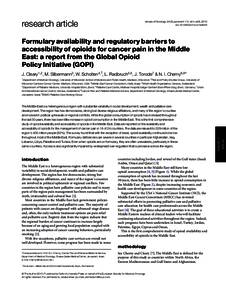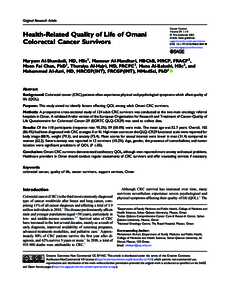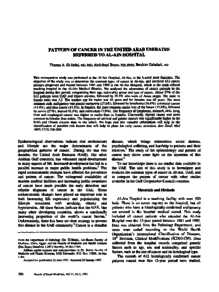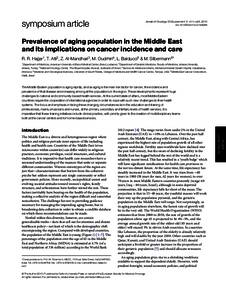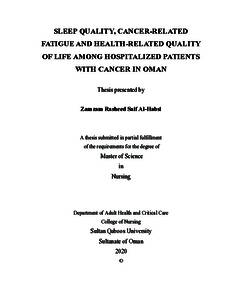Document
Formulary availability and regulatory barriers to accessibility of opioids for cancer pain in the middle east : a report from the Global Opioid Policy Initiative (GOPI).
Identifier
DOI: 10.1093/annonc/mdt503
Contributors
Silbermann, M., Author
Scholten, W., Author
Radbruch, L., Author
Torode, J., Author
Cherny, N. I., Author
Publisher
Oxford University Press.
Gregorian
2013-12
Language
English
Subject
English abstract
The Middle East is a heterogeneous region with substantial variability in social development, wealth and palliative care development. The region has few democracies, strong but diverse religious affiliations, and many of the region's counties are involved in political upheavals or regional conflicts.While the global consumption of opioids has increased throughout the last 30 years, there has been little increase in opioid consumption in the Middle East. This is the first comprehensive study of opioid availability and accessibility of opioids in the Middle East. Data are reported on the availability and accessibility of opioids for the management of cancer pain in 16 of 24 countries. The data are relevant to 329 million of the region's 403 million people (82%). The survey found that with the exception of Israel, opioid availability continues to be low throughout most of the Middle East. Formulary deficiencies are severe in several countries in particular Afghanistan, Iraq, Lebanon, Libya, Palestine and Tunisia. Even when opioids are on formulary, they are often unavailable, particularly in these same countries. Access is also significantly impaired by widespread over-regulation that is pervasive across the region.
Member of
ISSN
0923-7534
Resource URL
Category
Journal articles

